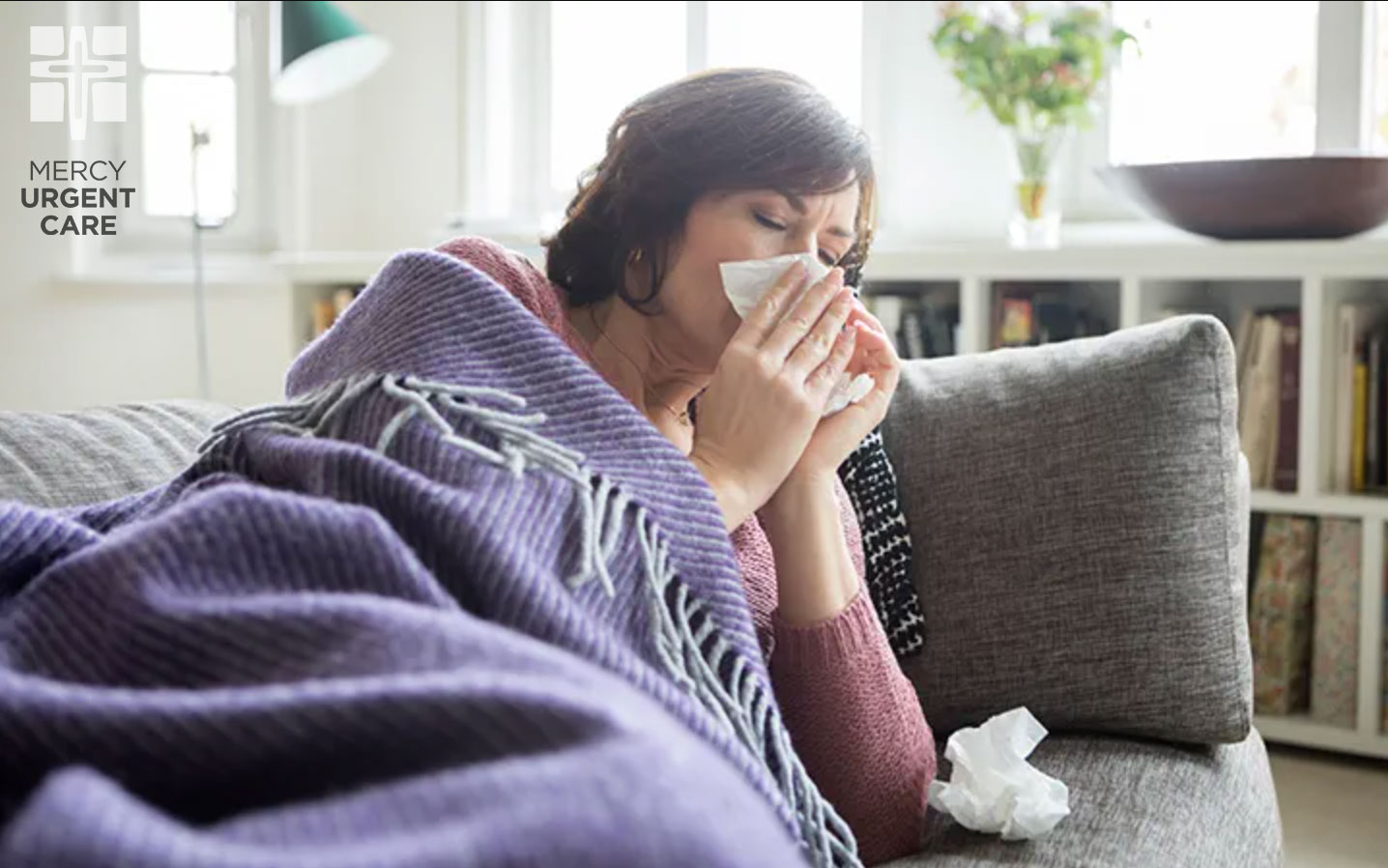Surge in upper respiratory issues

June 15, 2023 by Keely Knopp
Recently, Mercy Urgent Care has seen a surge in patients experiencing upper respiratory issues, ranging from current viral infections to airborne irritants to long COVID. Upper respiratory issues primarily affect the nose, throat and sinuses, with symptoms that include:
- persistent cough
- nasal congestion
- sore throat
- postnasal drip (a feeling of mucus dripping down the throat, which can cause a cough, throat irritation and/or the need to clear the throat frequently)
- fatigue and weakness
For anyone experiencing these or other symptoms of upper respiratory distress, Mercy is here to provide you with the care you need. Our compassionate team of healthcare professionals is trained to evaluate your symptoms and help you find relief, so you can get back to feeling your best.
In the meantime, here are a few steps you can take to alleviate symptoms at home, before or after your appointment:
- Stay hydrated, but avoid caffeine or alcohol, which can have the opposite effect. Water, juice, clear broths and warm lemon water can help soothe sore throats and loosen congestion.
- Get plenty of rest. If possible, stay home from work or school to give your body a chance to heal while reducing the risk of infecting others.
- Use a humidifier to ease coughing and congestion, but be sure to keep the device clean to prevent growth of bacteria or molds.
- Gargle saltwater to temporarily relieve a scratchy throat. Mayo Clinic suggests dissolving one-quarter to a half teaspoon of salt in a 4- to 8-ounce glass of warm water.
- Take over-the-counter cold medicines as directed on the package. Decongestants, antihistamines and pain relievers may be helpful for symptom relief for adults and children over 5 — though they won’t shorten a cold’s duration.
If symptoms persist or worsen beyond what you’d expect from the common cold, visit us at any of Mercy’s eight Western North Carolina locations to determine whether additional measures are needed to help combat the illness or infection.
Some upper respiratory symptoms may be linked to long COVID, a condition where individuals experience prolonged symptoms even after recovering from the acute phase of COVID-19. If you have previously had COVID-19 and continue to experience these symptoms, visit us at Mercy or seek advice from your health care provider to better manage your symptoms.

